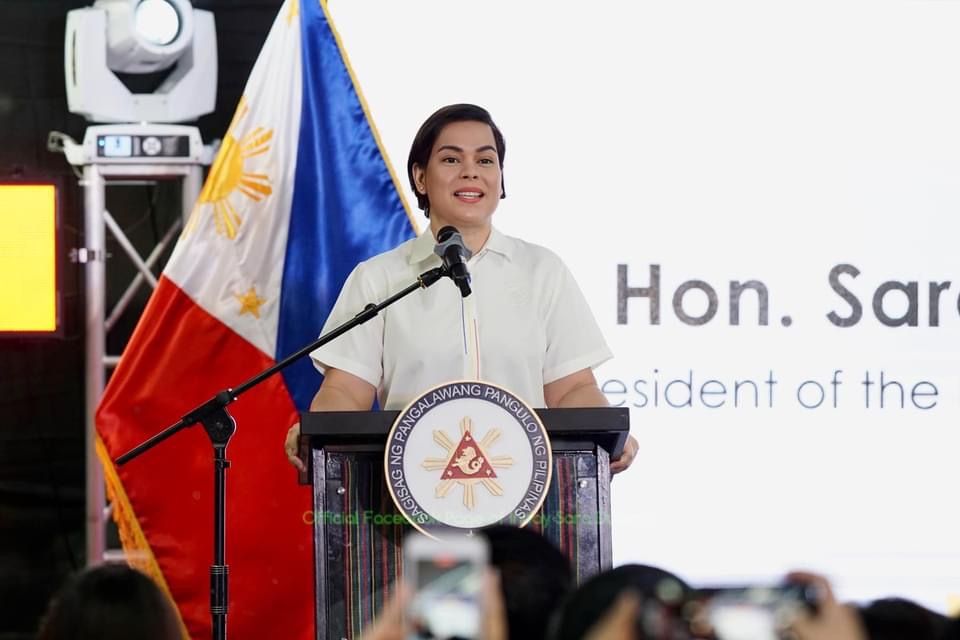OVP officials follow suit, call House probe into fund use 'unnecessary'
Skipping anew the House good government inquiry into the Office of the Vice President’s (OVP) budget utilization on Thursday, Oct. 17, several OVP officials called the hearing unnecessary and echoed Vice President Sara Duterte’s call to terminate the panel’s proceedings.

Vice President Sara Duterte (Inday Sara Duterte/Facebook)
In a position paper signed by 19 OVP officials and received by the House of Representatives’ Committee on Good Government and Public Accountability on Oct. 17, the OVP maintained that the panel’s inquiry was “not in aid of legislation.”
“We respectfully take the position that the deliberation or hearing is unnecessary and
that the attendance of the officials and personnel of the Office of the Vice President is therefore not needed,” the position paper read.
They argued that Duterte herself was already present to discuss the OVP’s proposed 2025 budget during the Aug. 27 deliberations by the House Committee on Appropriations.
The questions that Manila 2nd district Rep. Rolando Valeriano raised during his privilege speech on Sept. 3 regarding the OVP’s utilization of public funds can be verified though Commission on Audit (COA) reports, as well as the report submitted to the Committee on Appropriations, the officials pointed out.
That privilege speech became the basis of the good government committee’s inquiry into the OVP’s funds.
“It lacks clear legislative objective or contemplated legislation that is expected as an outcome of the deliberations. It has been the consistent position of the Office that a draft bill for consideration must at least be attached to the invitation for us to be informed of the aid that we can provide to the deliberations,” the position paper said.
“In the same vein, this lack of clear legislative objective or outcome, right from the very referral and commencement of the deliberations, cannot ensure that discussions would be germane to the subject matter,” it added.
The continuous refusal of the OVP to attend the hearing resulted in an Oct. 7 show cause order from the committee, demanding them to explain their absence.
But the position paper asserted that there is “jurisdictional issue” into inviting OVP officials as resource persons because the Committee on Appropriations, which has jurisdiction on expenditures of the national government, has already terminated its deliberations.
“Considering that budget utilization is a matter directly and principally relating to the expenditures of the national government, and that the appropriate committee (Committee on Appropriations) has already terminated its deliberations, no other committee can take up the same subject matter appropriately belonging to it,” the paper maintained.
“The Committee on Good Government and Public Accountability is also without jurisdiction to take up the present subject matter, considering that there has been no determination as to the existence of malfeasance, misfeasance and nonfeasance in office,” it stressed.
The OVP officials also cited a Supreme Court ruling that invited resource persons are not compelled to attend any congressional hearing.
“We are guided by this ruling of the Supreme Court in our position that invitations from the Committee may be declined, and that we have the right to respectfully refuse to participate in the proceedings,” the paper read.
Likewise, the OVP argued that since budget issues are already pending before the Supreme Court, it cannot comment on such matters because doing so “may directly or indirectly impede, obstruct or degrade the administration of justice.”
It warned also of a “constitutional crisis” that may arise between the House of Representatives and the Supreme Court if findings will be contradictory.